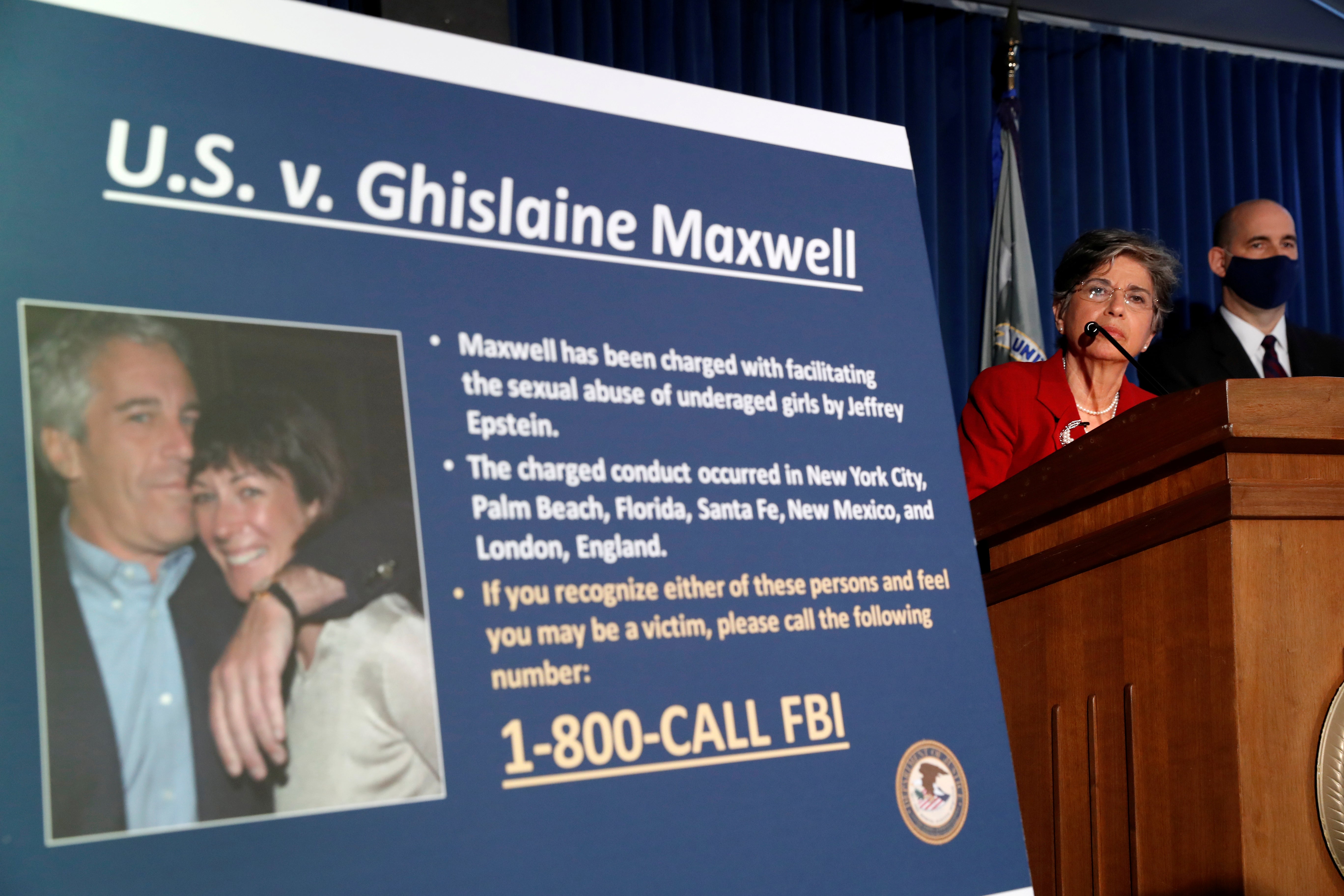Ghislaine Maxwell: Appeals judges to decide on keeping documents secret
Lawyers for Epstein associate want to keep deposition revealing ‘consensual and intimate conduct’ under wraps as socialite faces trafficking charges

Your support helps us to tell the story
From reproductive rights to climate change to Big Tech, The Independent is on the ground when the story is developing. Whether it's investigating the financials of Elon Musk's pro-Trump PAC or producing our latest documentary, 'The A Word', which shines a light on the American women fighting for reproductive rights, we know how important it is to parse out the facts from the messaging.
At such a critical moment in US history, we need reporters on the ground. Your donation allows us to keep sending journalists to speak to both sides of the story.
The Independent is trusted by Americans across the entire political spectrum. And unlike many other quality news outlets, we choose not to lock Americans out of our reporting and analysis with paywalls. We believe quality journalism should be available to everyone, paid for by those who can afford it.
Your support makes all the difference.A federal appellate judge will decide whether to keep secret Ghislaine Maxwell’s sealed deposition from a previous civil suit involving her former partner Jeffrey Epstein.
Ms Maxwell, who was charged in July on several sex trafficking charges, has sought the US Circuit Court of Appeals in New York to overturn a federal court decision to release more than 400 pages from a deposition involving a 2015 civil court case in which she discussed her involvement with Epstein.
Her lawyers argued before a three-judge panel on Tuesday that the release of those documents would compromise her right to a fair trial, though the judges appeared unconvinced.
The judges will issue a written ruling at a later date.
US District Court Judge Loretta Preska made a host of documents available following a July ruling, arguing that the public’s right to their release outweighs Ms Maxwell’s claim.
But the release of documents did not include Ms Maxwell’s sworn testimony from the now-settled civil suit, which the British socialite was able to keep under wraps pending an appeal.
From that case, Virginia Giuffre alleged that Ms Maxwell and Epstein had pressured her, as a teenager, to engage in sex acts with people within their circle, including Prince Andrew, who has denied the accusations.
The documents discuss “consensual and intimate conduct with other adults,” according to court filings.
Nearly a year after Epstein allegedly killed himself in jail while awaiting trial on federal sex trafficking charges, Ms Maxwell was arrested in July and charged with “enticing a minor to travel to engage in criminal sexual activity, transporting a minor with the intent to engage in criminal sexual activity, conspiracy to commit both of those offences, and perjury in connection with a sworn deposition,” according to prosecutors with the US Attorney’s office in New York.
Ms Maxwell has been accused of grooming and travelling with young girls who were raped by Epstein and his associates, according to prosecutors.
She has pleaded not guilty and denied any wrongdoing. Ms Maxwell remains in jail without bond.
The request to unseal Ms Maxwell’s deposition is part of a larger suit from the Miami Herald seeking to obtain documents related to Ms Giuffre’s case.
Her attorneys argued before a three-judge panel on Tuesday that she relied on the confidentiality provisions in her agreement to be deposed in the civil case, which led to a settlement, not a trial.
In court filings, her attorneys argued that unsealing those documents “will lead to a violation of [her] due process right to a fair trial by an impartial jury”.
“The criminal indictment quotes directly from it,” her attorneys argued in court filings. “The district court’s unsealing order eviscerates the promise of confidentiality on which Ms Maxwell and numerous third parties reasonably relied. It sanctions the perjury trap unfairly set for Ms Maxwell, in violation of the fifth amendment privilege against self-incrimination.”




Join our commenting forum
Join thought-provoking conversations, follow other Independent readers and see their replies
Comments